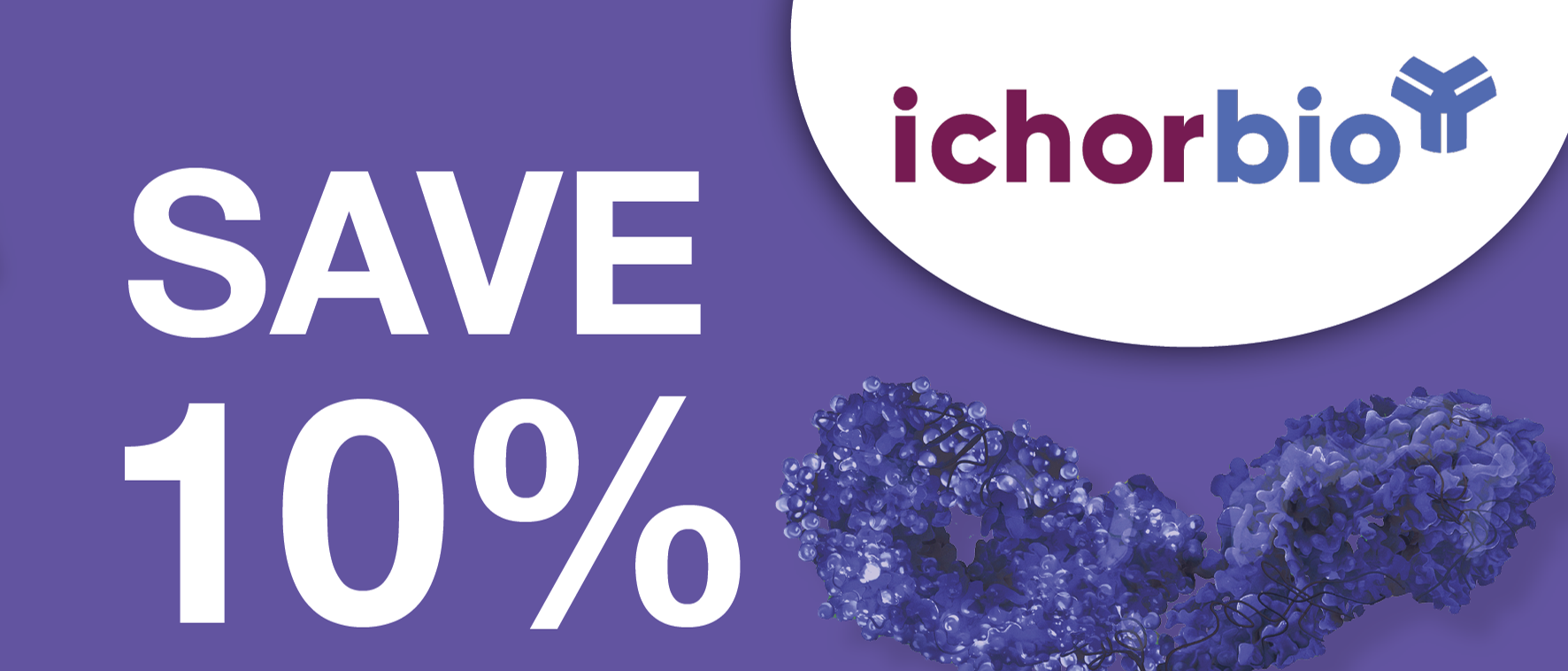
CDK9 phospho T29 Antibody
Product Sizes
100 ug
600-401-996-100UG
About this Product
- SKU:
- 600-401-996
- Additional Names:
- CDK9|rabbit anti-CDK9 pT29 antibody, Cell division protein kinase 9, Cyclin-dependent kinase 9, Serine/threonine-protein kinase PITALRE, Cell division cycle 2-like protein kinase 4, C-2K, Tat-associated kinase complex catalytic subunit, CDC2L4, TAK
- Application:
- ELISA, Immunoprecipitation, Western Blot
- Buffer:
- 0.02 M Potassium Phosphate, 0.15 M Sodium Chloride
- CE/IVD:
- RUO
- Clonality:
- Polyclonal
- Concentration:
- 1.3 mg/ml
- Extra Details:
- This antibody is designed, produced, and validated as part of a collaboration between Rockland and the National Cancer Institute (NCI). CDK9 (PITALRE) is a member of the cyclin-dependent protein kinase (CDK) family. CDK family members are highly similar to the gene products of S. cerevisiae cdc28 and S. pombe cdc2 and are known as important cell cycle regulators. CDKs are heteromeric serine/threonine kinases that control progression through the cell cycle in concert with their regulatory subunits, the cyclins. Although there are 12 different cdk genes, only 5 have been shown to directly drive the cell cycle. CDK9 (PITALRE) interacts with a conserved domain in the TRAF-C region of the tumor necrosis factor signal transducer TRAF2. This kinase was also found to be a component of the multiprotein complex TAK/P-TEFb, which is an elongation factor for RNA polymerase II-directed transcription and functions by phosphorylating the C-terminal domain of the largest subunit of RNA polymerase II. It promotes RNA synthesis in genetic programs for cell growth, differentiation and viral pathogenesis. P-TEFb is also involved in co-transcriptional histone modification, mRNA processing, and mRNA export. It modulates a complex network of chromatin modifications including histone H2B mono-ubiquitination (H2Bub1), H3 lysine 4 trimethylation (H3K4me3) and H3K36me3. It integrates phosphorylation during transcription with chromatin modifications to control co-transcriptional histone mRNA processing. CDK9 forms a complex with, and is regulated by, its regulatory subunit, cyclin T or cyclin K. The CDK9/cyclin-K complex has also a kinase activity towards CTD of RNAP II and can substitute for CDK9/cyclin-T P-TEFb in vitro. The CDK9/cyclin-K complex is required for genome integrity maintenance, by promoting cell cycle recovery from replication arrest and limiting single-stranded DNA amount in response to replication stress, thus reducing the breakdown of stalled replication forks and avoiding DNA damage. In addition, probable function in DNA repair of isoform 2 via interaction with KU70/XRCC6. CDK9 promotes cardiac myocyte enlargement. The phosphorylation of MYOD1 enhances its transcriptional activity and thus promotes muscle differentiation. HIV-1 Tat protein has been found to interact with this protein and cyclin T, which suggested a possible involvement of this protein in AIDS.
- Formulation:
- 0.02 M Potassium Phosphate, 0.15 M Sodium Chloride, pH 7.2
- Host:
- Rabbit
- Immunogen:
- This affinity purified antibody was prepared from whole rabbit serum produced by repeated immunizations with a synthetic peptide corresponding to residues surrounding T29 in the human CDK9 protein.
- Isotype:
- IgG
- Physical State:
- Liquid
- Reactivities:
- Human, Mouse, Rat
- Shipping Conditions:
- Dry Ice
- Specificity:
- This product was affinity purified from monospecific antiserum by immunoaffinity chromatography using phospho-peptide coupled to agarose beads followed by solid phase adsorption against nonphospho-peptide. This antibody is specific for human CDK9 protein phosphorylated at T29. A BLAST analysis was used to suggest cross-reactivity with CDK9 from human, mouse and rat based on 100% homology with the
- Storage Conditions:
- -20[o]C aliquoted. Aliquot. Avoid freeze/thaw cycles.
- Supplier:
- Rockland Inc
- Type:
- Antibody: Polyclonal Antibody
- Manufacturer's Data Sheet:https://www.rockland.com/search/?searchString=600-401-996


